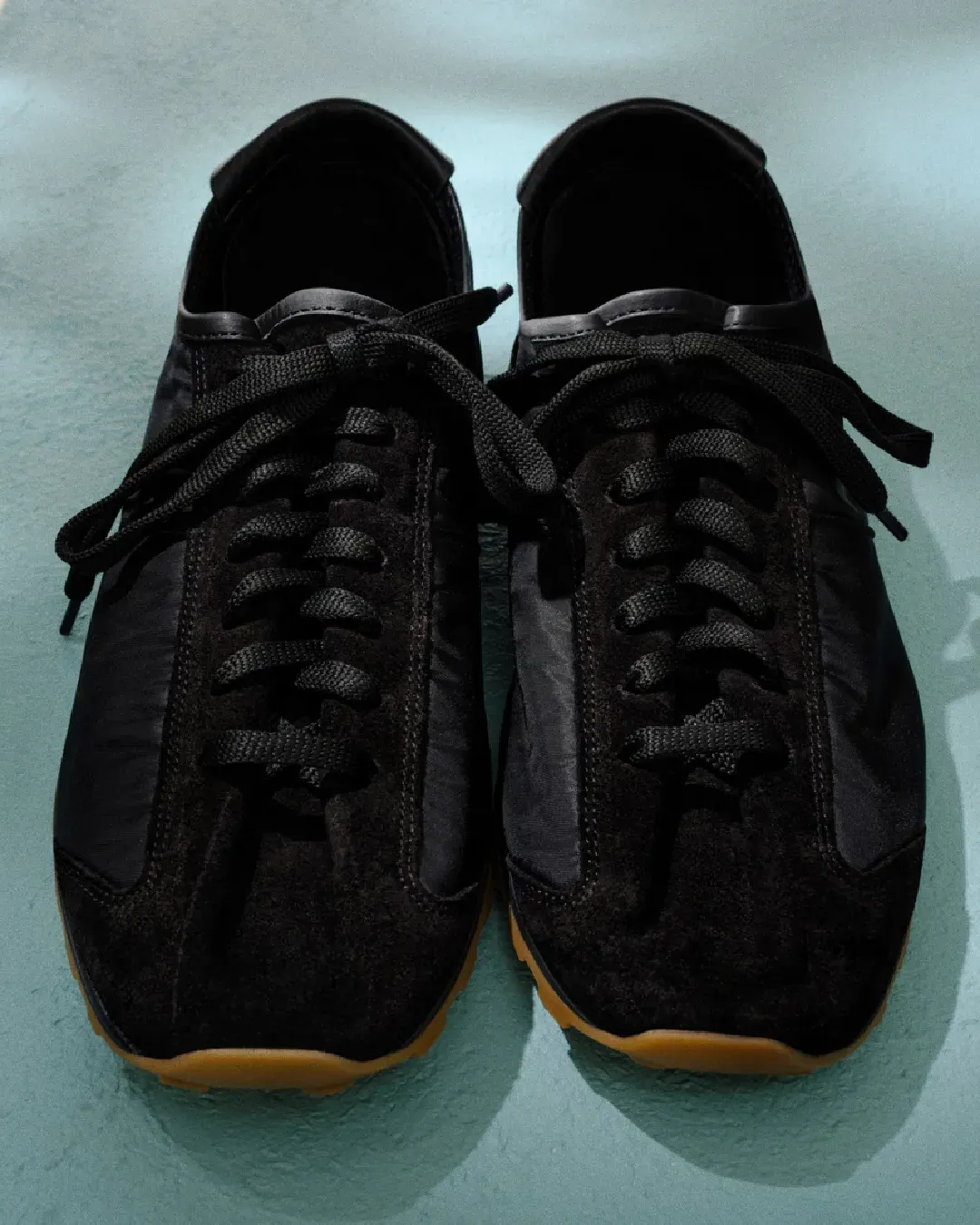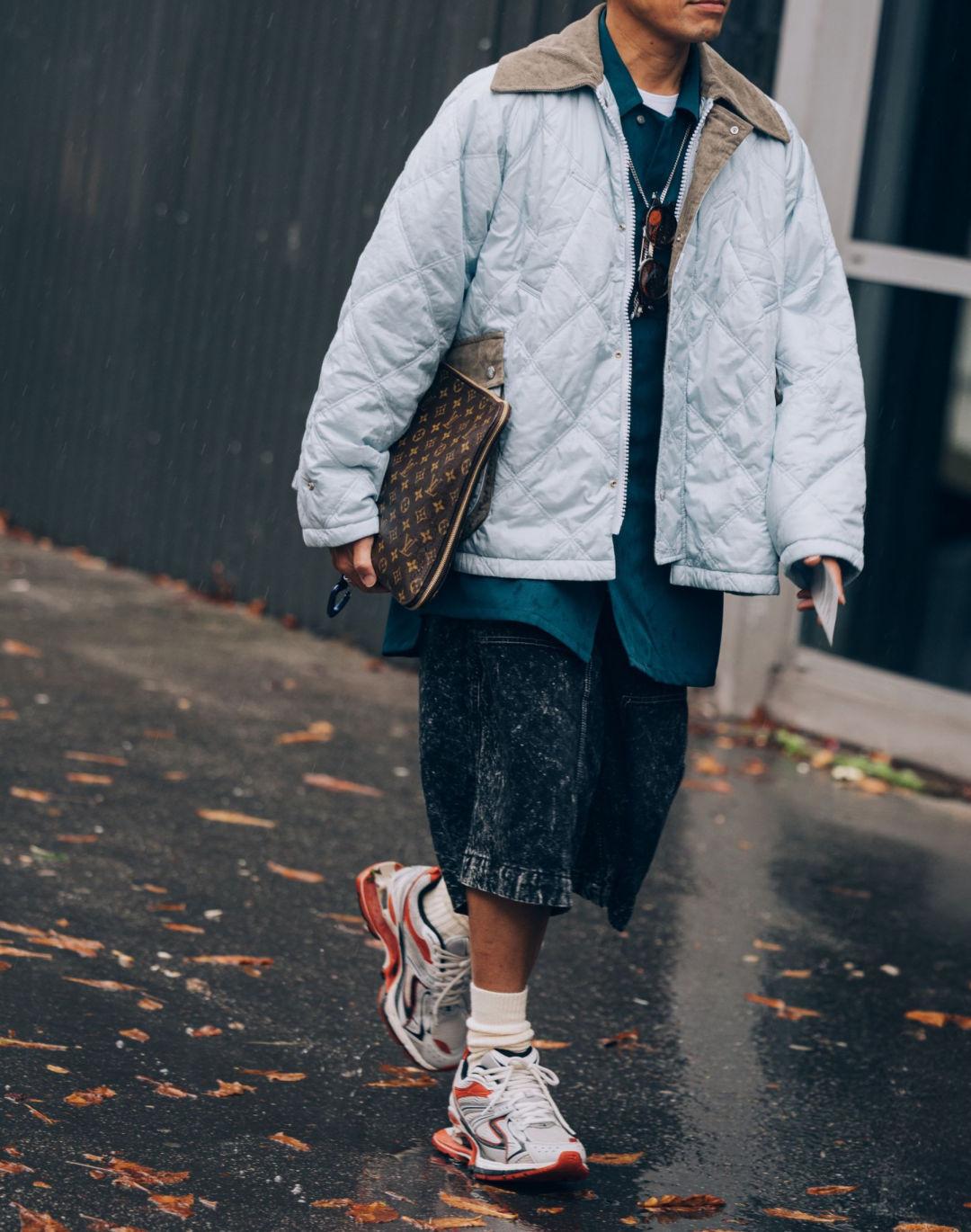
Adidas wants to take back Black Culture With the help of Beyoncé and Donald Glover
In an article published on GQ in February 2018, Jake Wolfe underlined the enormous relevance that the Boost technology had in the recent adidas’ revenue increase and branding, «So much so that we've started referring to Adidas's history in terms of B.B. [Before Boost] and A.B. [After Boost]». Wolf also cited Kanye West as a great influence in this process, especially because of his love for Ultra Boost, that we’ve learned about through many pictures and outfits. However Yeezy also played a great role in the background of that process: comparing 2012 with 2015 adidas revenue (the year Yeezy was officially launched), Sole Collector noted an increase of around 2 billion, which although it might be difficult to really understand how much was due to Yeezy, the result is still incredible. It’s, in fact, undeniable the success of the narrative built by Ye, especially when he and adidas decided to reverse the “scarcity-trend” that became a kind of mantra in the industry.
A really solid success, that was able to resist to the horrible year Kanye had, that was centred around the backlash from his speech about slavery and his relationship to Donald Trump. However the fact that the sales of Yeezy (as well as the media attention) didn’t decrease offers us a very counterintuitive result: there are a lot of white conservatives who buy Yeezy.
It’s also true that, as pointed out by Jaws Murray on Racked, a lot of black people also have issues with Michael Jordan and his attitude towards the black community. However if we think about the general perception of Kanye last year, and the sales of Yeezy, we could infer that the relevance of adidas in black community is now not so strong, especially if compared with one of the major Adidas competitors, Nike, who also recently used Colin Kapernick as the face of their last campaign. Another example that could further explain could be: every February America celebrates Black History Month. Starting from 2005, Nike celebrates the occasion with a special pack of releases. When adidas tried to copy them, it ended with an internet backlash caused by the release of an entirely white shoe that they called ‘the uncaged’, that forced the brand to retire the pack.
However, during the last months adidas has announced two really important collaborations: the first with Donald Glover aka Childish Gambino previewed at the end of the artist’s Feels Like Summer video and then materialized at Coachella and in a series of short films created by Glover. The other important collaboration saw Beyoncé involved, the queen of modern pop who will be the creative partner of the brand in order to work closely on Ivy Park - her sportswear brand. Bey and Gambino are without any doubt two of the most influential artists in the black community, who took really seriously the mission of re-stating and rewriting the idea of black identity and black narrative. So, can we interpret the interest of adidas in these figures as a will to take the black culture back? The strategy would also follow the trend in the current demographic American market: as pointed out by Nielsen in the report “Black Dollars Matter: The Sales Impact of Black Consumers”: «Our research shows that Black consumer choices have a ‘cool factor’ that has created a halo effect, influencing not just consumers of color but the mainstream as well». Andrew McCaskill, Nielsen VP, also added, «With 43% of the 75 million Millennials in the U.S. identifying as African American, Hispanic or Asian, if a brand doesn’t have a multicultural strategy, it doesn’t have a growth strategy».
The interest of sportswear brand towards non-sports player is nothing new, both in the modern market - think about the enormous success of Rihanna with PUMA. Also from a historic perspective, one of the first relevant moments in sportswear culture arrived in 1986, when RUN DMC released My Adidas, that made Adidas the first brand with a personalized rap song. The song was meant to consolidate the relationship between the rappers and Adidas which, in the meanwhile - thanks to the commercialization of the tracksuit, had became popular among the b-boys: «I gave them 1 million, and they ended up generating more than $100 million in the next 4 years», adidas ex-executive Angelo Anastasio told Barbara Smit in her book Sneaker War.
The pivotal success in the hip hop world was able to keep adidas on top during the 90s, after that Michael Jordan and Nike conquered an entire market and modified the idea of the sneaker culture itself. The appeal Jordan had in the black community was impacted briefly in Do the Right Thing, the movie by Spike Lee from 1989, but also by the violence that surrounded the sneaker community that peaked with the death of Michael Eugene Thomas during a robbery for his Jordan V sneakers. The relevance the NBA was able to obtain during the 90s gave Nike and Jordan an incredible power. Nike supported and protected the sports black idols, even when they experienced scandals - like Kobe or Tiger. Then, in the era of LeBron James, Nike seemed to be the winner of the game, because the figures of Derrick Rose and James Harden were not high enough to contest Nike. But what if that role could have been played by artists and musicians?
In 2014 when Mark King became President of the North-American division of the brand, he started with an interesting statement: «Great brand needs a great culture». The collaboration between Pharrell and adidas in the creation of the shoe collection Human Races aroused some critics under the pretence of cultural appropriation, seeing that the interest in the culture was in some ways distant from the characters. In the cases of Beyoncé and Glover, there aren’t that many risks seeing that the two already have the love of the black community.
The first announcement of the partnership between Glover and Adidas was previewed in his music video Feels like summer, which is a short film that spoke about modern black culture - between music, history and politics - that made the video an instant classic and gave the brand good leverage. That leverage was consolidated by the press release some months after, where Glover spoke: «With this project, I wanted to encourage people to think about how their stories can be told on their feet. Value isn’t quantified by what you wear, rather the experiences from them».
As far rhetorical as it sounds, the scope was pursued during Coachella, when Glover and Adidas gave away the shoes to the festival attendees, and then in the short-movie made for the release by Royalty - the black creative team who often works with Glover. In this case it’s not coincidental that the short-movies resemble Atlanta, the drama comedy series that helped Glover establish his role in the black community.
Similarly, Erick Liedtke, board member of Adidas, spoke about their partnership with Beyoncé: «Beyoncé is an iconic creator but also a proven business leader, and together, we have the ability to inspire change and empower the next generation of creators». The generation to which Liedtke aims to is, above all, female: during her career Bey has become a real icon of black feminism, a generation of young women has been inspired by her songs and her actions. The role of Beyoncé as a black icon was also seen in Coachella, where she made an incredible performance to pay homage to HBCU, the union of black and indo universities. Also, during this year’s Coachella, she made a party in celebration of her documentary, which she wore some new pieces from the forthcoming Bey Z Ivy Park collaboration.
As underlined by Matt Welty on Complex, behind Adidas’ decision to bet on Beyoncé there could be also the will to balance the conservative position of Kanye West. Democrats primary are really close, as well as the 2020 Elections: to have Beyoncé by its side gives adidas the possibility of great liberal positioning. The polarization of American politics has always made the cultural-political field more risky: but to have Donald Glover and Beyoncé by their sides gives them a great possibility of moving towards the right direction.




















































